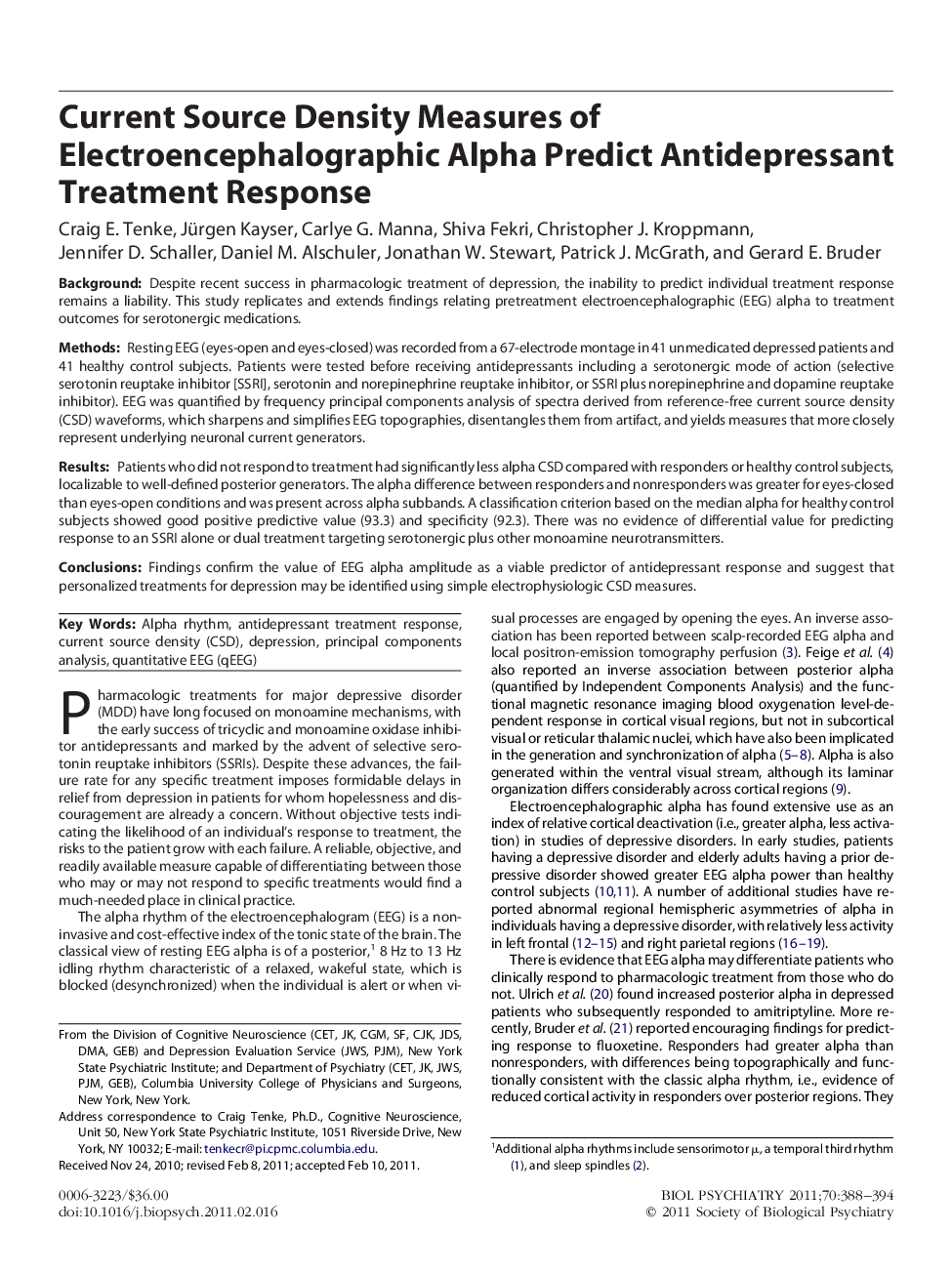| Article ID | Journal | Published Year | Pages | File Type |
|---|---|---|---|---|
| 4178115 | Biological Psychiatry | 2011 | 7 Pages |
BackgroundDespite recent success in pharmacologic treatment of depression, the inability to predict individual treatment response remains a liability. This study replicates and extends findings relating pretreatment electroencephalographic (EEG) alpha to treatment outcomes for serotonergic medications.MethodsResting EEG (eyes-open and eyes-closed) was recorded from a 67-electrode montage in 41 unmedicated depressed patients and 41 healthy control subjects. Patients were tested before receiving antidepressants including a serotonergic mode of action (selective serotonin reuptake inhibitor [SSRI], serotonin and norepinephrine reuptake inhibitor, or SSRI plus norepinephrine and dopamine reuptake inhibitor). EEG was quantified by frequency principal components analysis of spectra derived from reference-free current source density (CSD) waveforms, which sharpens and simplifies EEG topographies, disentangles them from artifact, and yields measures that more closely represent underlying neuronal current generators.ResultsPatients who did not respond to treatment had significantly less alpha CSD compared with responders or healthy control subjects, localizable to well-defined posterior generators. The alpha difference between responders and nonresponders was greater for eyes-closed than eyes-open conditions and was present across alpha subbands. A classification criterion based on the median alpha for healthy control subjects showed good positive predictive value (93.3) and specificity (92.3). There was no evidence of differential value for predicting response to an SSRI alone or dual treatment targeting serotonergic plus other monoamine neurotransmitters.ConclusionsFindings confirm the value of EEG alpha amplitude as a viable predictor of antidepressant response and suggest that personalized treatments for depression may be identified using simple electrophysiologic CSD measures.
